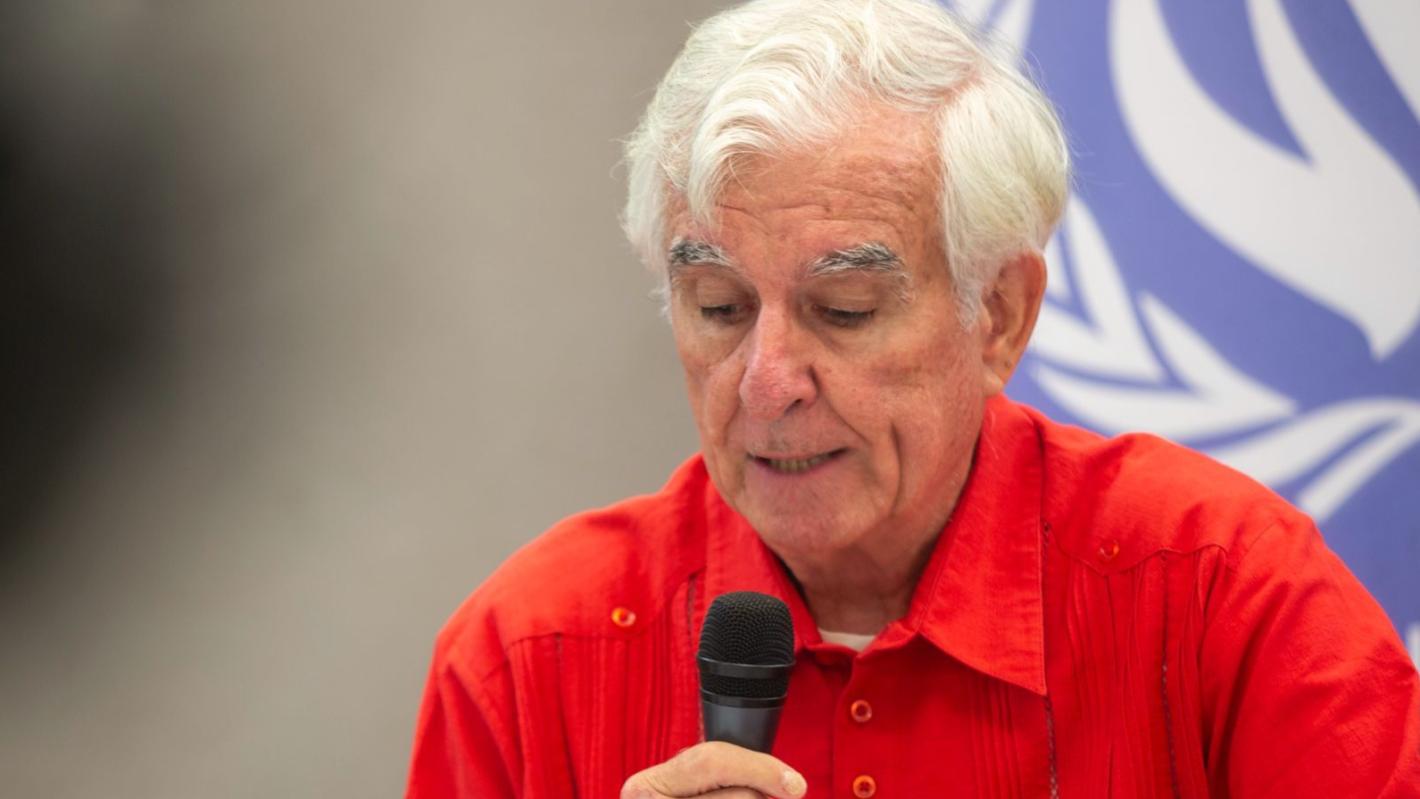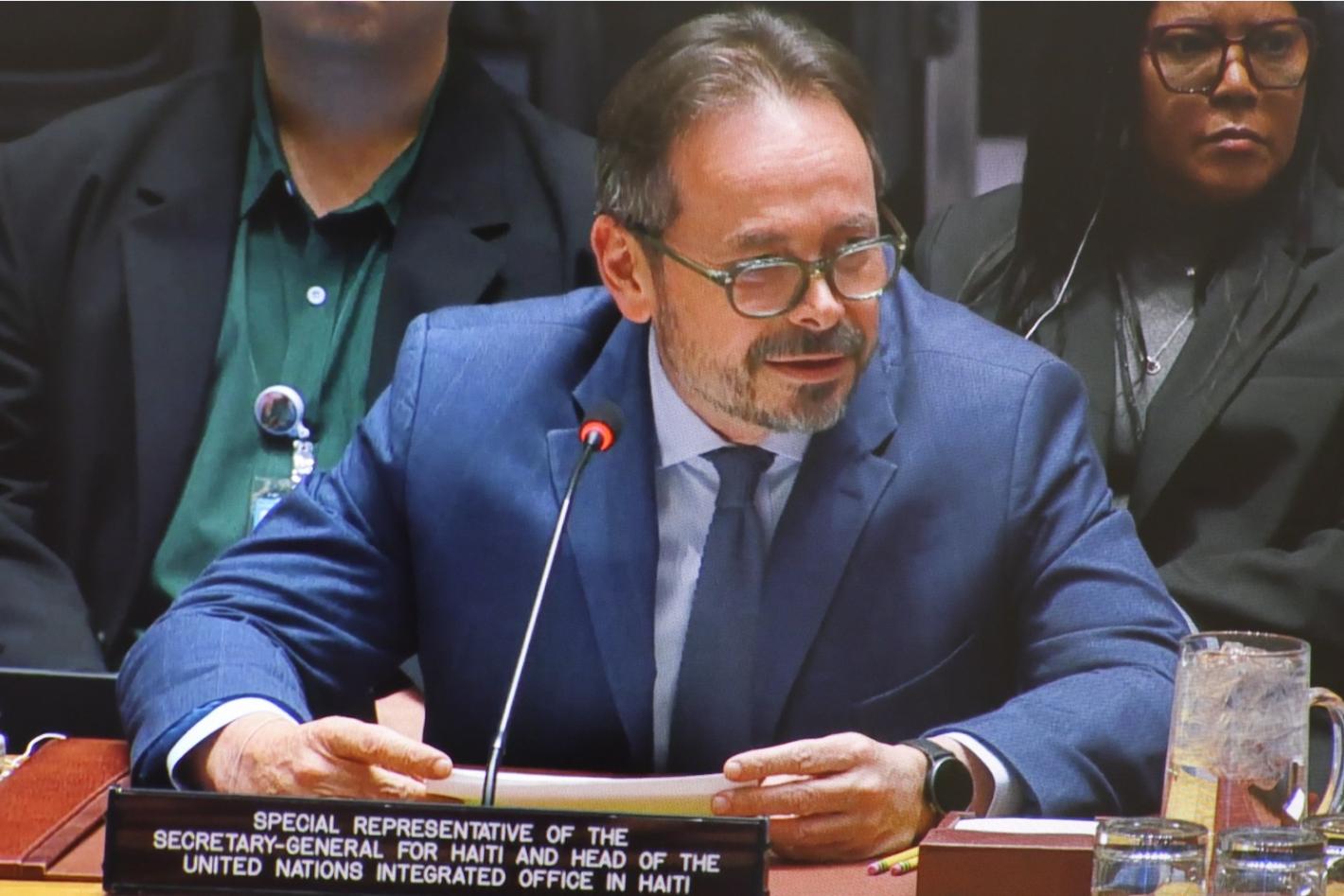Port-au-Prince (20 September 2024) – Approximately one year ago, I stood before you and painted a bleak picture of the human rights situation in Haiti. Today, I am sad to say, that all indicators remain extremely worrying. The first, and most concerning of them, insecurity.
Despite an international embargo, arms and ammunition continue to be smuggled into the country, enabling gangs to carry out large-scale attacks and extend their control and influence over new territories.
During my visits to the south of the country, in Les Cayes and Jérémie, I saw that areas previously not impacted by gang violence are now directly impacted, with galloping inflation, lack of basic goods, and flows of internally displaced people further increasing the vulnerability of the population, particularly children and women. The human rights and humanitarian consequences are dramatic.
The police lack the logistical and technical capacity to counter the gangs. “The situation borders on the impossible. We have to learn to walk on water,” said a policeman at the Jérémie police station.
The Multinational Security Support Mission (MSS), authorized by the UN Security Council in October 2023, has so far deployed less than a quarter of its planned contingent. The equipment it has received is inadequate, and its resources are insufficient.
Meanwhile, the population continues to suffer from its human rights being violated. Sexual violence, used as a weapon by gangs to control the population, has drastically increased in recent months. Gangs have increasingly trafficked children, forcibly recruited them into gangs, and often used them to carry out attacks against public institutions and police operations. Youth are losing hope of a better future.
During my visit, I met young Haitians, former gang members, who told me they felt they were being held hostage. One said that “When hunger takes hold of you, you can't think of anything else, not even fear.”
When asked them what they aspired to, they referred to a normal life, a job, for children to go to school, and enough to support themselves and their family. Thanks to the support of a civil society organization, they managed to leave the gang and now have a job.
Civil society organizations often take on the State’s role in providing basic needs to the population, which lacks everything. This is particularly the case in gang-controlled neighborhoods, but also in displaced persons' camps, and in prisons, precisely where the State should be making every effort to protect the most vulnerable. To date, only 28% of health services are functioning normally in Haiti, and almost five million people are suffering from acute food insecurity.
At the camp for displaced persons, Mission Église de Dieu la Conquête, we spoke to an anaemic little girl who had not eaten in two days. She spent her days sitting on the ground in the stifling heat, waiting to go home. She had not been to school in over a year. Like hers, the testimonies of the internally displaced indicate that their only wish is to return to their homes, “at least to live as they did before.” There are currently at least 700,000 internally displaced people (IDPs) in Haiti. More than half are children.
What can I tell you about the prisons? Outside Port au Prince, the situation is even worse than it was a year ago. In the south of the country, at the prison in Les Cayes, there are 853 detainees for a total capacity of 200; at the prison inJérémie, there are 470 detainees for a capacity of 50. They sleep on floors flooded with rainwater and littered with filth. Sometimes they go without eating for several days. Several dozen inmates have died in these conditions this year. At least 84% are in prolonged pre-trial detention.
I welcome the Prime Minister's efforts to make the fight against corruption a priority. Corruption corrodes the system at every level of the hierarchical chain, and in every sector, first and foremost the justice system. The means exist, but they are often misused, a practice encouraged by almost complete impunity. Out of 94 investigations carried out by the Anti-Corruption Unit over the last 20 years, only one has led so far to a conviction. The authorities' commitment to set up “pôles judiciaires specialises” or judicial units, to combat corruption and mass crimes, including sexual violence, will be crucial to effectively remedy this situation.
The solutions are there, and they already exist. But efforts must be redoubled immediately. On the one hand, we need to make the State accountable to fight corruption and bad governance, which continues to plunge the country into an unprecedented humanitarian crisis. On the other hand, it is crucial to stifle the gangs by giving the MSS Mission the means to be effective in supporting the operations of the Haitian National Police, as well as to implement the other measures provided for by the United Nations Security Council, including the sanctions regime and the targeted arms embargo.
This enduring agony must stop. It is a race against time.
END.



